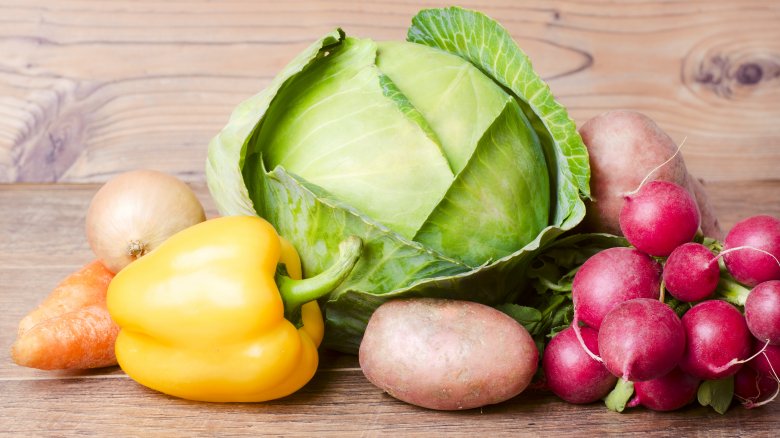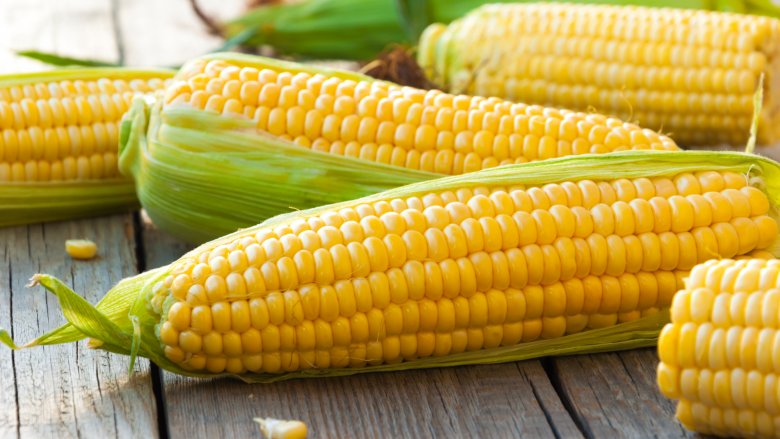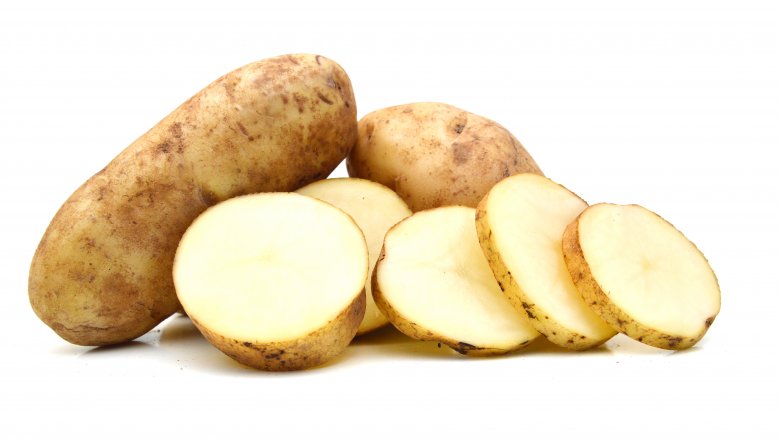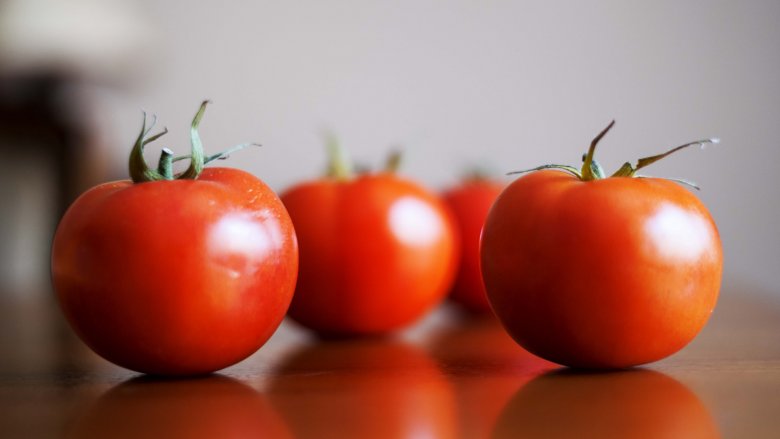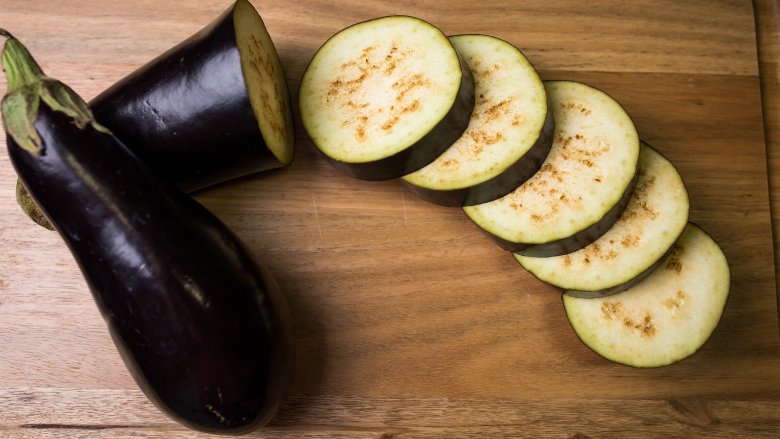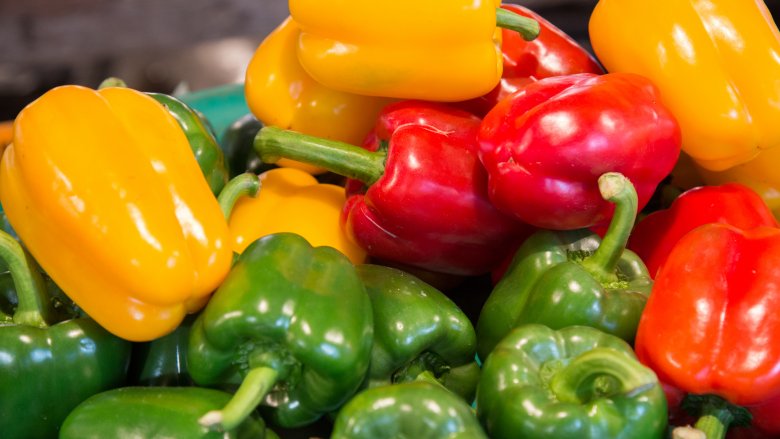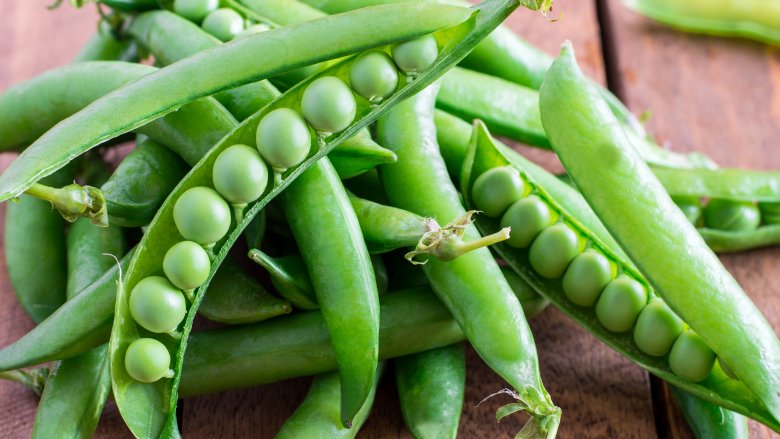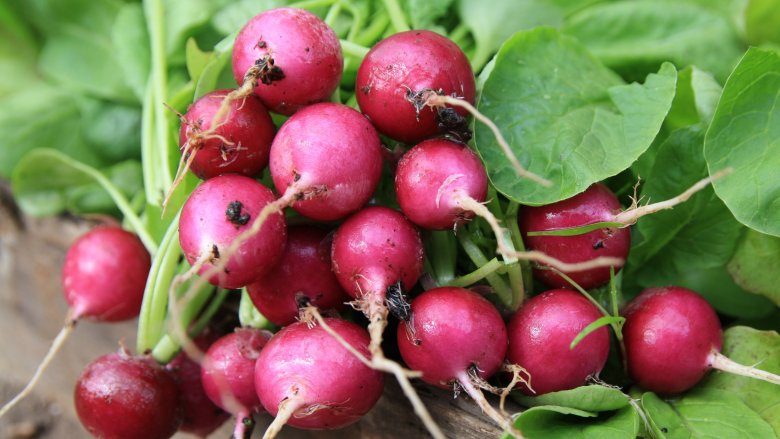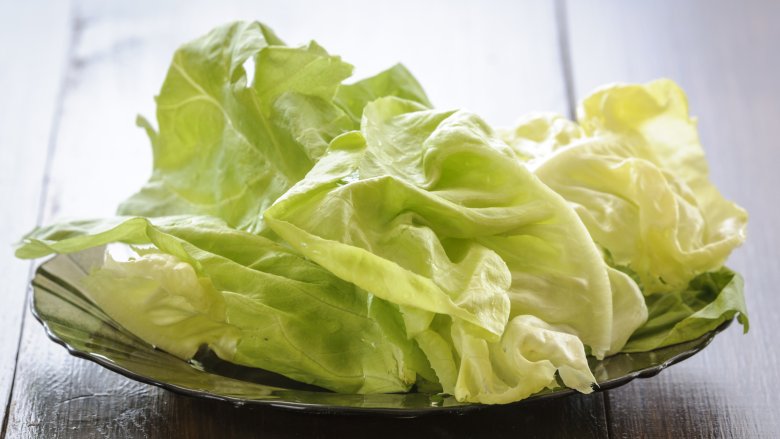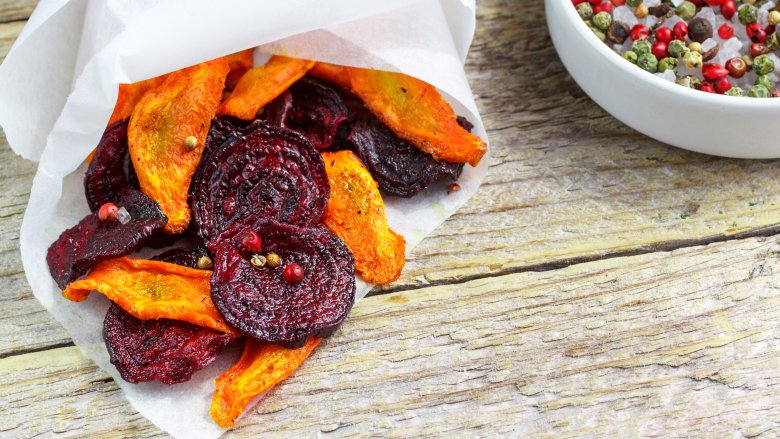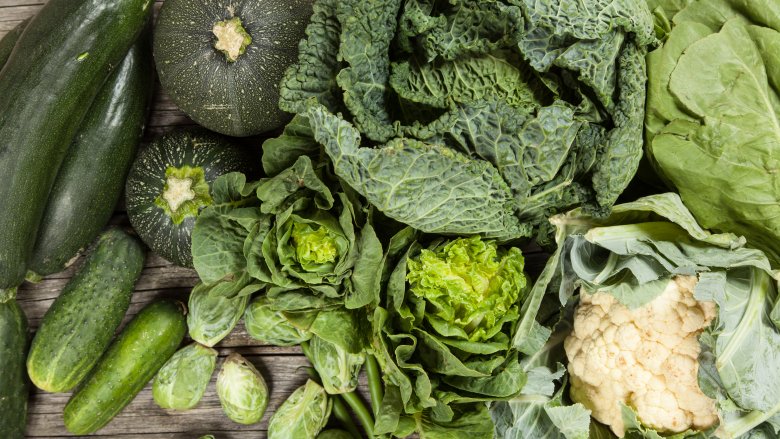Vegetables That Aren't As Healthy As You Think
You know you should eat more vegetables, right? We all know it... but sometimes it's easier said than done. If you're one of the millions of people who are trying to live better, chances are you make a conscious effort to forgo sweets and fast food for the occasional salad or green smoothie — because vegetables, no matter which ones, are always healthy, right? Unfortunately, that's not quite true.
"It is always better to choose a fruit or vegetable over processed food in a snap decision," Dr. Konda Reddy of Physicians Weight Loss Orlando, told me in an interview. But, the truth is, not all vegetables are created equal. Some of them actually trick you into thinking you're making a super healthy choice, when in fact, you may not be. Here are some vegetables that aren't as healthy as you think. Read up before your next trip to the farmers market!
Corn
If you're anything like me, corn probably ranks high on your list of favorite vegetables. From grilled corn on the cob to sweet corn salad, these little morsels of yellow goodness taste delicious no matter how you prepare them. And because they're a vegetable, I always feel a little when I choose to forgo French fries to nosh away at some corn instead. Unfortunately, most nutritional experts I spoke to weren't as big of fans of corn as I hoped.
"Vegetables like corn are higher in carbohydrates, and the carbohydrates contained inside these veggies are not mostly indigestible fiber, but rather, strings of sugar also known as starches," registered dietician Catherine Metzgar, Ph.D. told me in an interview. "These starches are very digestible and are quickly converted into sugar in your body, raising your blood sugar."
Metzgar explained that frequent spikes in your blood sugar has all sorts of negative long-term effects, from a higher risk of developing type 2 diabetes to weight gain and heart disease.
White potatoes
Like corn, white potatoes, when not organic, are loaded with pesticide residue, according to Dr. Elizabeth Trattner, who is board-certified in oriental medicine and acupuncture. "These are my top 'no-go' veggies," she told me in an interview. "White potatoes and corn are also high in empty calories and high on the glycemic index."
Tomatoes
Non-organic tomatoes are also a big no-no for Dr. Trattner. Like corn and white potatoes, they can be loaded with pesticides. "Usually tomatoes are mealy and tasteless," she told me.
Nutrition and health coach, Renne Tavoularis, also noted that tomatoes are part of the nightshade family of veggies, which can increase inflammation within the body. "Studies have shown that there is an association with arthritic and joint pain problems," she told me. "It is recommended to avoid consumption for people with chronic inflammation and autoimmune diseases."
Eggplant
Eggplants are also part of the nightshade family and have some of the highest levels of solanine (a type of plant poison) among all of the nightshade vegetables, according to Tavoularis. Because solanine can cause inflammation, especially in the joints, eggplants may not be a good option for people with arthritis or other autoimmune conditions.
Dr. Reddy also says eggplant can be more calorie-dense than we imagine. "Often chosen as a meat substitute, eggplant shares an unfortunate characteristic of the very thing it is trying to replace," she told me. "Due to its spongy texture, eggplant will absorb the oils, fats, calories and sodium of whatever it is prepared alongside."
Peppers
Peppers can be a delicious complement to salads, tacos and salsa. But if you're looking to stay away from inflammation-causing foods, you might want to ease up on the peppers. Tavoularis told me that peppers are also considered a nightshade, so like eggplant, tomato and white potato, they can cause arthritic and joint pain problems.
Green peas
If you're a fan of Indian cuisine, you probably love green peas. And why wouldn't you? They're sweet, juicy, and green, so they must be healthy. Well, according to Dr. Luiza Petre, a board-certified cardiologist and weight management specialist, these babies might not be as healthy as we all thought. "Peas are full of purines, which the body breaks down into uric acid," she told me in an interview. "Adding peas to your diet can exacerbate gout and impaired kidney function."
Radishes
In the hierarchy of healthy vegetables, radishes, while quite tasty, don't reign supreme. Apart from being a good source of vitamin C, radishes aren't incredibly nutrient-dense compared to other veggies. Large amounts have also been known to cause stomach trouble, including excess gas and bloating, according to the International Foundation for Functional Gastrointestinal Disorders. They also work as a diuretic, meaning consumption of large quantities could lead to dehydration.
Iceberg lettuce
If you've been relying on iceberg lettuce as a base to your favorite salad, it may be time to switch things up. While certainly not "unhealthy," iceberg lettuce has less nutritional value than other leafy greens including butter and romaine lettuce, according to Sonya Angelone, R.D. (via Self). Still, it's better than nothing. "If someone only likes iceberg lettuce, it's better than not eating any lettuce at all," she said.
Veggie chips
Although veggie chips may seem healthier than your average greasy potato chips, they're usually not. According to Today, those all-important vitamins (like A and C) that are found in vegetables disappear when these veggie chips are process, so they really don't offer much nutritional value at all. Plus, your average veggie chips are high in fat, sodium and calories. Just one ounce of veggie chips can cost you about 150 calories, which is the same as potato chips.
Instead, Dr. Petre suggests making your own veggie chips by oven baking kale, squash or mustard greens with sea salt. "These make great chips and provide vitamin K, C, and calcium."
Better for you veggies
When choosing vegetables to eat, sticking to the non-starchy variety will usually give you the most bang for your buck. "As a general rule of thumb, most veggies that grow below ground are considered starchy," Metzer told me. "Focus on vegetables that are low in carbohydrate and higher in fiber, as these vegetables will impact your blood sugar the least, while still providing you with important vitamins and minerals."
Dr. Petre also suggests getting a little adventurous. "Introduce a new vegetable that is in season every week," she said. "Experiment with new recipes and find new family favorites."
